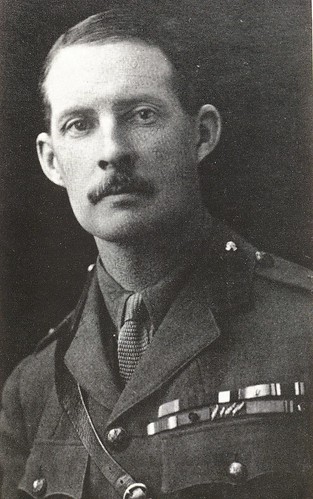

At some occasions I have received e-mails from an Ulrich Motte, describing himself in the first e-mail as "a libertarian democrat from Munich, Germany, who knows Otto von Habsburg, and who knew Erik von Kühnelt-Leddihn even better."
At a later occasion he described himself as "a Democrat like Us-presidents Jefferson, Jackson, Cleveland."
First of all, I do not pretend to represent Prof. Hoppe or his views. I will, however, clarify based on my understandings.
Secondly, the topic of monarchy's superiority in the light of the American Republic and the Helvetic Confederation is a topic fit for a lengthy article. I will here address a few issues.
Mr. Motte wrote:
[T]he Habsburg empire was much more socialistic than the democracies of [Switzerland] and the US at that time.Maybe so.
It is true that these republics (I choose not to call them democracies in this context) had great success for a long time. The theory of monarchy and democracy does not preclude this – either the way I see it, or the way I understand Dr. Hoppe sees it. In fact, a republic or democracy can succeed for quite a long time after the monarchy has been overthrown – it may even do better for quite a while. However, as the heritage of sound civilization gets more and more at a distance, things tend to get worse.
Mr. Motte continued:
[O]f course, bad monarchs are much more diffucult to oust from office than presidents.This may be true in theory. What matters in practice, however, is if they really are ousted. Monarchs of old would very likely never have gotten away with what modern politicians do get away with. Abraham Lincoln was reelected.
In reponse to a later article, Mr. Motte wrote:
[C]ontrary to your statement, the more democratic states of the western world, the US and Switzerland, have been the least state oriented ones. Norway is not too democratic, but not democratic enough. The US and Switzerland know popular elections of government members and judges and referenda.The men of 1905 in Norway talked of Switzerland as the "role model." I haven't seen any successful attempt to copy the Swiss miracle.
I would not suggest that Switzerland become a monarchy. Nor would I suggest that those United States should, although I have sympathies with the views of the late Dr. John Attarian on the ousting of the monarchy from the colonies. For those United States, I would rather go with Leland B. Yeager and recommend going back to the older republican traditions.
However, I find it absurd, with the way expansion of the reach and the size of the state has gone hand in hand with expansion of democracy, to order more democracy. That sounds much like pouring fuel on the fire. Is there a tipping point? Do we have to go through a "purgatory" before we reach our "Switzerland?"
Later on Mr. Motte wrote:
[M]onarchies usually have been more socialistic than purely democratic republics. The Austrian empire and the German one were much more socialistic than the most democratic nations, USA and Switzerland.Great Britain was more democratic than Austria in 1848. Yet, Dr. Alan Sked suggests in his The Decline and Fall of the Habsburg Empire, 1815–1918 that there was more of a police state in Great Britain at the time than in Austria.
I can imagine there certainly are those who would put the issue of those United States having the least bad police state in the Western world today up for serious discussion. Strictly speaking, this is something different than socialism, but it is still a matter to be considered.
Even later on Mr. Motte wrote:
I proved Hoppe to be unmoral in various ways. The starting point of his arguing is already wrong: The great thinkers of democracy never described it as anything coming close to any idea of God, but as a lesser evil in a world of evil people.I do not recall Dr. Hoppe having claimed that the "great thinkers of democracy" have likened democracy to a god. Please do refer me to the statement.
There is in fact in today's world a worship of democracy – and has been for quite some time – that makes the metaphor the god democracy – or the god Demos – highly relevant. Using this metaphor does not necessarily imply that one claims that the "great thinkers of democracy" endorse such a god status.
Thus far, finally, Mr. Motte wrote:
Furthermore history [simply] proves [Hoppe] to be wrong. The USA and Switzerland were and are less socialistic than any comparable monarchy.The way I see it – and as far as I understand, this is also the way Prof. Hoppe sees it – monarchy is better than democracy – or less bad if you will – as a general rule – as opposed to a universal rule – in the sense that when all else is equal, monarchy tends to be better than democracy.
One can disprove a universal rule with only one counterexample, but one does not necessarily disprove a general rule with several counterexamples.
As for the phrase "comparable monarchy," the claim in the last sentence of Mr. Motte depends on what one means by comparable. If one does not compare across time, and one does not compare with geographically small states, the statement may be true.
Published with the prior consent of Mr. Motte.






3 comments:
Of course I agree with you, but in a sense this argument is not really important to me, because I care much more about monarchy than about economic systems. So even if your correspondent is "correct," I would still prefer the Habsburg Empire to the US or Switzerland, though those are not the worst republics. I would rather live in a liberal constitutional monarchy with a welfare state than a "conservative" republic without one.
While I am not a socialist, I certainly think that the arguments for some government intervention in the economy are stronger than the "arguments" against monarchy. Therefore, I would consider all monarchists my friends, whatever their economic views, but capitalists/libertarians are my friends only if they defend monarchy.
There are many other aspects than "economic system." While many of them certainly are related to – and influenced by – this aspect, they are strictly speaking other aspects.
E.g., those United States have a system – relatively speaking – of free enterprise. However, the peer pressure that we here about on the other side of the big pond is not something that rightly can be called freedom.
Moreover, I visited a friend in Geneva 9 years ago. His wife told me that they there will call the police before they tell you to stop doing whatever you're doing, because there they really make the laws themselves.
Post a Comment